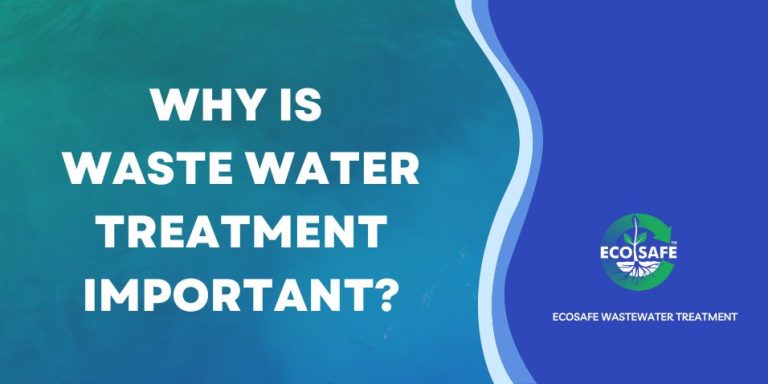Facts About Reclaim Waste Revealed
Facts About Reclaim Waste Revealed
Blog Article
The 45-Second Trick For Reclaim Waste
Table of ContentsHow Reclaim Waste can Save You Time, Stress, and Money.The Single Strategy To Use For Reclaim WasteThe Greatest Guide To Reclaim WasteRumored Buzz on Reclaim WasteThe Greatest Guide To Reclaim Waste
Discover the kinds, incidents, and forms of fluid waste. Domestic sewage waste refers to the waste and products from a property septic storage tank. This sort of waste is developed by human beings in houses, schools, and various other structures. This only includes sewage-disposal tanks that have a drainpipe area. The proper administration and disposal of residential sewage waste require liquid waste to be transferred to a sewage treatment plant where the appropriate methods and devices are used to cleanse and get rid of waste.
Industrial waste often includes potential risks, such as flammable products or a blend of fluid and strong waste products, and needs an advanced and detailed disposal procedure. The disposal of industrial waste usually involves the filtration of waste prior to transportation to make certain risk-free and appropriate disposal. Hazardous waste is created from results and drainage of commercial procedures and production.
This sort of waste can not use the exact same sewage administration transport or procedures as septic or business fluids. The hazardous waste management process requires the inspection and testing of fluid waste before it goes through the disposal procedure (liquid waste removal). Runoff waste is the liquid waste that originates from drainage and excess stormwater in very populated locations or cities
Drainage waste can create contamination and flooding if not taken care of effectively. Find out more regarding drain cleansing and waste monitoring. Ensuring proper waste monitoring can protect against catastrophes and minimize environmental injury. Both individuals in household settings and professionals in industrial or production markets can benefit from understanding the processes and regulations of liquid waste monitoring.
Indicators on Reclaim Waste You Need To Know
Call PROS Providers today to find out about our waste monitoring and disposal solutions and the proper methods to take care of the fluid waste you produce.
(https://hub.docker.com/u/reclaimwaste1?_gl=1*1980ev1*_ga*MTgwOTc3Nzc2OS4xNzMxMzI1Mzkw*_ga_XJWPQMJYHQ*MTczMTMyNTM5MC4xLjEuMTczMTMyNTcwOC4xMC4wLjA.)Do you understand what occurs to your water when you disengage, flush the commode or drain pipes the washing equipment? No? Well, it's worth knowing. This supposed 'wastewater' is not just a crucial source yet, after treatment, will be released to our land, rivers or the ocean. Made use of water from toilets, showers, baths, kitchen area sinks, laundries and commercial procedures is called wastewater.

water utilized to cool equipment or tidy plant and equipment). Stormwater, a type of wastewater, is runoff that flows from farming and urban locations such as roof coverings, parks, yards, roads, paths and seamless gutters into stormwater drains pipes, after rain. Stormwater streams unattended directly to regional creeks or rivers, eventually getting to the ocean.
10 Simple Techniques For Reclaim Waste
In Queensland, most wastewater is treated at sewer therapy plants. Wastewater is transferred from domestic or industrial websites via a system of sewage systems and pump terminals, understood as sewage reticulation, to a sewage therapy plant. City governments develop, keep and run most sewer treatment plants. Operators are accredited under the Environmental Protection Act 1994 to discharge cured wastewater at an acceptable ecological standard right into waterways.
The Division of Natural Resources suggests local governments about handling, operating and maintaining sewerage systems and treatment plants. In unsewered locations, city governments might require householders to set up private or family sewer therapy systems to deal with domestic wastewater from toilets, kitchens, restrooms and washings. The Division of Natural Resources authorises making use of family systems when they are verified to be effective.
In some new neighborhoods, therapy of some stormwater to eliminate litter, sand and gravel has actually begun making use of gross contaminant traps. Wastewater therapy happens in 4 phases: Removes solid matter.
Wastewater after that moves into huge tanks where solids resolve and are eliminated as sludge. Oil and residue are skimmed from the surface. Makes use of tiny living organisms referred to as micro-organisms to break down and remove continuing to be liquified wastes and fine bits. Micro-organisms and wastes are incorporated in the sludge. Removes nitrogen and phosphorus nutrients that might create algal blooms in our waterways and intimidate water life.
Reclaim Waste - Truths
Nutrient removal is not readily available at all sewer treatment plants due to the fact that it calls for expensive specialized devices. Clear liquid effluent produced after therapy may still include disease-causing micro-organisms - industrial wastewater treatment.

Many wastewater flows right into the sewerage system. Under the Act, neighborhood federal governments carry out approvals and permits for ecologically pertinent activities (Periods) including wastewater launches that might have a neighborhood effect.
The Ultimate Guide To Reclaim Waste
Tracking gives valid information about water high quality and can verify discover this that permit conditions are being fulfilled. The information obtained with monitoring provides the basis for making water quality decisions.
Report this page